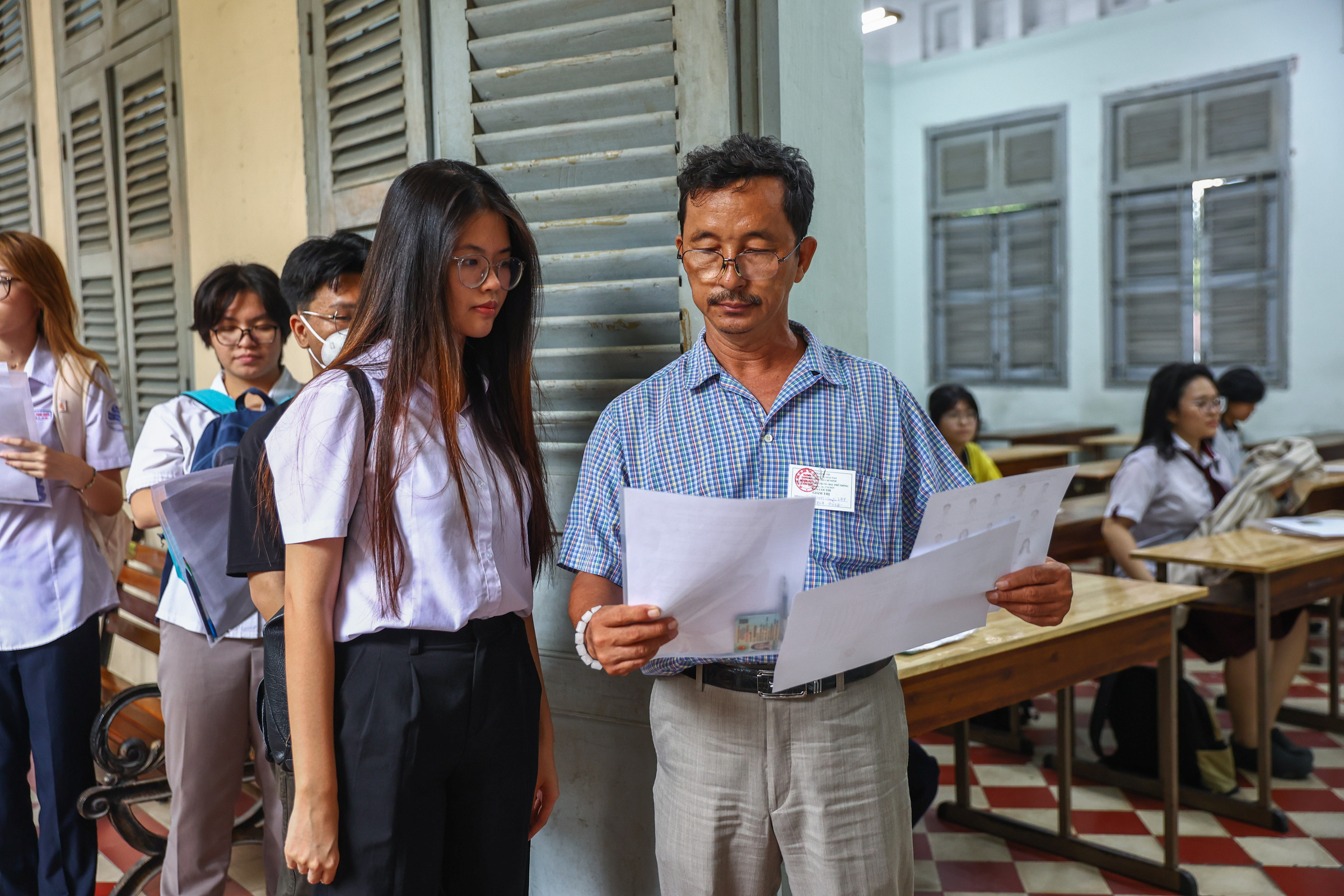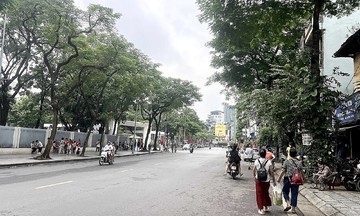The 30-year-old Englishman and two of his university-educated compatriots were shocked by the exam's difficulty.
Brooks, who has two years of experience teaching at an English center in Ho Chi Minh City and now works at an international school, saw lively discussions on Facebook about the national high school exam challenging even native English speakers. He downloaded exam code 1101 to try it himself.
His first impression was that the exam's layout was difficult to follow, with many trick questions and a lack of clear organization. "This forces students to constantly shift their thinking, making it easy to lose focus and miss details, even for native speakers," Brooks said. Some questions used academic vocabulary and complex sentence structures, requiring students not only to understand the literal meaning but also to grasp the context and connections between sentences to answer correctly.
"I couldn't finish this exam," he said. "For high school students in a country where English is a foreign language, this exam is too difficult and stressful."
 |
High school students in Ho Chi Minh City take the 2025 high school graduation exam. Photo: Quynh Tran |
High school students in Ho Chi Minh City take the 2025 high school graduation exam. Photo: Quynh Tran
Debra Mann, an administrator of the TEFL English teacher community, also attempted the exam and was surprised to find herself rereading many questions twice to understand them. She noted that the exam's sentence structures were unnatural and deviated from international standards, posing difficulties for learners from the very beginning.
"The current exam is too advanced for the high school level," she said.
On TikTok, videos of "foreigners taking the 2025 English exam" have attracted tens of millions of views and thousands of comments. Notably, an American TikToker answered 6 out of 40 questions incorrectly. In another video, a Vietnamese student abroad had two native English speakers try the exam, and they rated its difficulty a 7/10.
Discussions have been heated on social media forums, particularly in the Hanoi and Ho Chi Minh City expat groups. Some argued that the exam effectively differentiates students, forcing them to think more flexibly. Conversely, many felt the exam was too demanding for high school students, even challenging native speakers.
"I could choose the correct answers, but I couldn't explain why. These questions are almost only for native speakers; they're quite complex," commented a user named John. His comment garnered 300 likes.
Two Americans try Vietnam's high school English exam. Video: Brooklynkechuyen
Not all foreigners were "shocked" by this year's exam. Joshua Ryan, an American and founder of LingoPass English, observed significant changes in this year's English exam compared to the previous year, especially in vocabulary. "There are many unfamiliar words that even native speakers might not know," the 31-year-old said. He cited the example of "greenwashing" (falsely portraying an organization as environmentally conscious). This is a specialized environmental term, making it difficult for students unfamiliar with the field, though they could still guess the meaning based on context.
The reason many students struggled was their reliance on formulas and lack of skills in handling new vocabulary. According to Ryan, a major challenge for Vietnamese students is their formulaic approach to learning English, primarily for test-taking rather than practical use.
The lack of practice in critical thinking and argumentation in English makes it difficult for students to grasp new concepts. When the exam format changes, rote learning becomes ineffective. Students need training in reasoning and language thinking, rather than just memorization.
The grammar and foundational skills sections of the exam were not overly difficult; the issue lay in the presentation and the requirement for in-depth language processing. Ryan suggested adding an oral communication component to assess students' ability to use the language in real-life situations, rather than just reading comprehension or fill-in-the-blank exercises.
 |
Luan Vu in an English class in District 3, Ho Chi Minh City. Photo: Courtesy of the subject |
Luan Vu in an English class in District 3, Ho Chi Minh City. Photo: Courtesy of the subject
Le Hoang Phong, Academic Director of YOUREORG English Language Training and Education Consultancy, believes the controversy surrounding this year's English exam largely stems from a shift in the assessment approach.
From a scientific, systematic, and theoretically grounded perspective on language assessment, the exam has many positive aspects.
First, it shows increased authenticity, with some texts extracted from real-world materials instead of artificial passages designed solely for test preparation. This aligns the exam more closely with real-life communication situations and enhances construct validity, meaning its ability to accurately measure English proficiency for academic and everyday use.
The exam structure also demonstrates a shift from testing formal knowledge to assessing the ability to use language in context. Questions require students to choose the correct words, use appropriate collocations, and organize information coherently, rather than just identifying isolated grammatical errors.
Furthermore, the exam integrates both written and spoken discourse, reflecting an effort to assess language skills comprehensively, aligning more closely with the demands of academic and professional environments.
"This indicates a stronger connection between assessment objectives and testing methods," Phong analyzed.
Therefore, if implemented correctly, the exam could have a positive ripple effect, prompting teachers and students to adjust their teaching and learning methods towards practical skill development.
Ngoc Ngan












